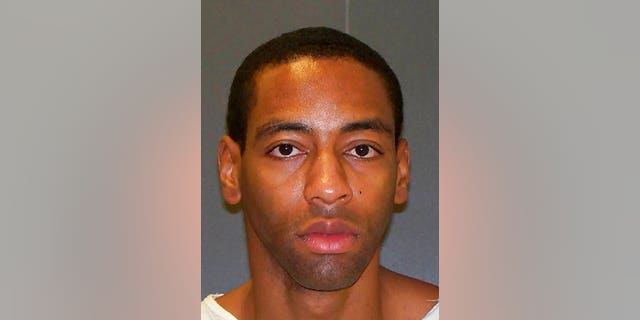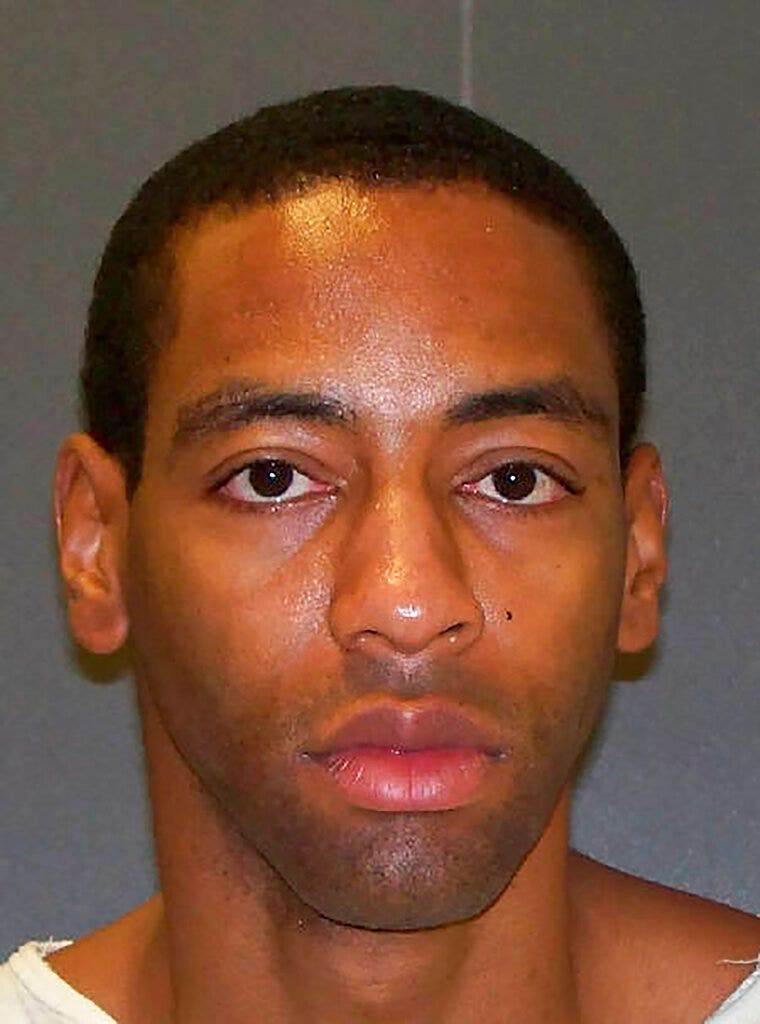A Texas inmate convicted of murdering his supervisor at a state prison shoe factory 17 years ago was executed by lethal injection Wednesday despite a last-ditch appeal by his attorneys to convince the U.S. Supreme Court to halt his death sentence.
Travis Runnels, 46, did not give a final statement before he was given a lethal dose of the powerful sedative pentobarbital. He smiled and mouthed words and a kiss toward three female friends and two of his attorneys who watched through a window a few feet from him. Then he blurted out “Woof, woof!” just before taking four quick breaths and snoring four times before all movement stopped.
He was pronounced dead at 7:26 p.m. at the state penitentiary in Huntsville, 22 minutes after receiving an injection to the arm. He is the 22nd inmate put to death this year in the U.S. and the ninth in Texas.
DALLAS MAN GETS 30 YEARS IN PRISON AFTER CALLING ON SLAUGHTER OF 'INFIDELS' FOR ISIS
Runnels, who was a former janitor at the Texas Department of Criminal Justice Clements Unit in Amarillo serving a 70-year prison sentence for an aggravated robbery conviction in Dallas, was apparently disgruntled at his supervisor, 38-year-old Stanley Wiley, because Runnels wanted to be transferred to a job at the prison's barbershop.
In retaliation of his request not being fulfilled, Runnels pulled Wiley's head back and rammed a knife used to trim shoes through his throat with enough force that it cut through his trachea and into Wiley's spinal cord.

In this undated photo provided by the Texas Department of Criminal Justice is inmate Travis Runnels. Runnels was executed by lethal injection on Wednesday, Dec. 11, for the Jan. 2003, killing of Amarillo state prison supervisor Stanley Wiley, in the prison shoe factory. (Texas Department of Criminal Justice via AP)
“It was cowardly,” prosecutor Randall Sims told jurors at Runnels’ trial in 2005, two years after the attack took place.
Runnels' execution was delayed by an hour on Wednesday, as his attorneys pleaded that a witness who testified against their client in 2005 provided false testimony. Attorneys also said that no defense was presented because his lawyers advised him to plead guilty and called no witnesses, but the appeal was not granted.
Wiley’s sister, Margaret Robertson, and her husband both watched the execution through a window in an adjacent witness room. Robertson hugged and shook hands with several of the hundreds of Texas corrections officers present at the prison.
Janet Gilger-VanderZanden, one of his more recent attorneys, said Runnels changed during his 14 years on death row.
“There is true and authentic remorse for the death of Mr. Wiley. There are no excuses, rather there is a commitment to finding some kind of light in what was once a world of only darkness,” Gilger-VanderZanden said.
CLICK HERE FOR THE FOX NEWS APP
In his clemency petition to the Texas Board of Pardons and Paroles, Runnels included letters from more than 25 individuals from around the world who said Runnels had worked to make amends for what he did.
“He has become a light that shines bright even in the darkest of spaces. The tragedy that he is responsible for will only be compounded if his valuable light were to be extinguished,” Kristin Procanick, from Syracuse, N.Y., wrote in one of the letters.
Still, the testimonials were to no avail, as lower courts and the Texas Board of Pardons and Paroles also turned down Runnels' attorneys' requests to stop his execution.
The Associated Press contributed to this report.
